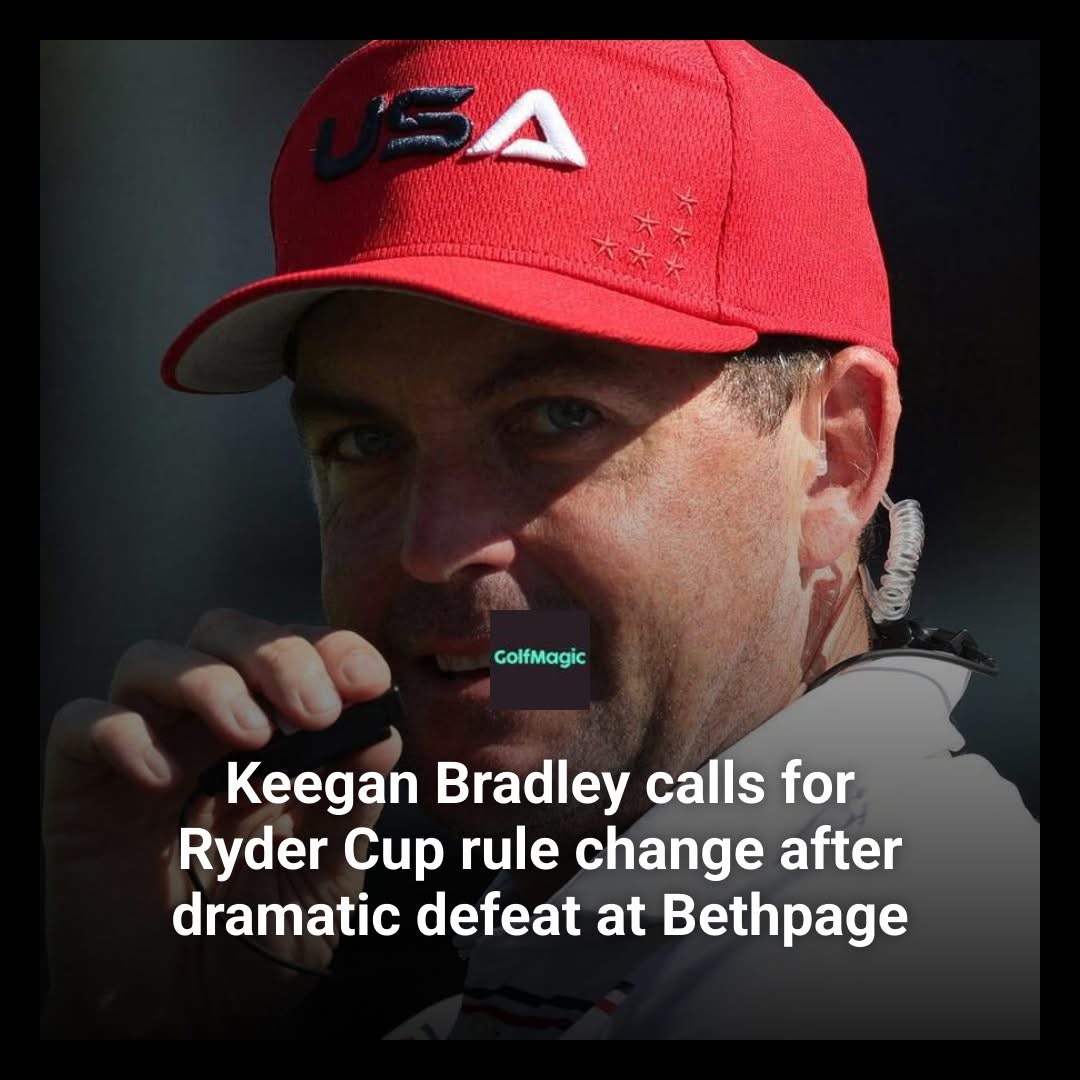The dust has barely settled on a pulsating Ryder Cup at Bethpage Black, but U.S. captain Keegan Bradley has already set his sights on reforming one of the competition’s most contentious regulations. Following Team USA’s narrow and dramatic defeat to Europe, Bradley has called for changes to what is known as the “envelope rule” — a rarely invoked but potentially decisive part of Ryder Cup play.
The rule, which allows each captain to place the name of a player into a sealed envelope ahead of Sunday’s singles matches, is intended as a contingency in case an opposing player is forced to withdraw due to injury or illness. In such a scenario, the two names are matched, resulting in a halved point without a ball being struck.
On Sunday at Bethpage, however, the rule took center stage in controversial fashion. Viktor Hovland’s late withdrawal due to a lingering neck injury triggered the envelope rule. Bradley had placed Harris English’s name inside his team’s envelope, meaning English’s much-anticipated singles match was cancelled and ruled a half point. The ruling proved costly, with Europe eventually clinching the Ryder Cup by the slimmest of margins.
Speaking after the defeat, Bradley did not hide his frustration.
“It’s a tough one to swallow,” he admitted. “We prepared for battle, and Harris was ready to go out there and fight for his point. To lose that opportunity because of a rule that hasn’t been looked at in decades just doesn’t feel right. I think the players, fans, and captains all deserve better.”
Bradley argued that the envelope rule, though designed for fairness, ended up unfairly influencing the outcome of one of golf’s most prestigious events.
“The Ryder Cup is about competition, about going toe-to-toe. A coin-flip rule shouldn’t be the difference between winning and losing. There has to be a better way,” he said.
Suggestions for reform have already started to circulate. Some have proposed replacing the halved point with a substitute player, allowing another team member to step in if a match is lost to withdrawal. Others have suggested that the opposing team should automatically be awarded the point to maintain accountability.
European captain Luke Donald, while sympathetic to Bradley’s frustration, defended the rule’s intent.
“It’s been part of Ryder Cup tradition for a long time,” Donald noted. “It’s designed to protect both sides from being penalized when unfortunate circumstances arise. I understand Keegan’s perspective, but every captain has to play by the same set of rules.”
Despite his disappointment, Bradley praised his team’s effort and resilience throughout the week, insisting that the setback would serve as motivation for the next Ryder Cup in Ireland.
“This one hurts, no doubt,” Bradley said. “But we’ll regroup, we’ll learn, and we’ll be stronger next time. The Ryder Cup is too important not to keep fighting for.”
Whether the envelope rule remains untouched or undergoes revision, Bradley’s call has reignited debate over how much tradition should govern the Ryder Cup versus adapting to the realities of modern competition. One thing is certain: the echoes of Bethpage will be felt long after the final putt dropped.









